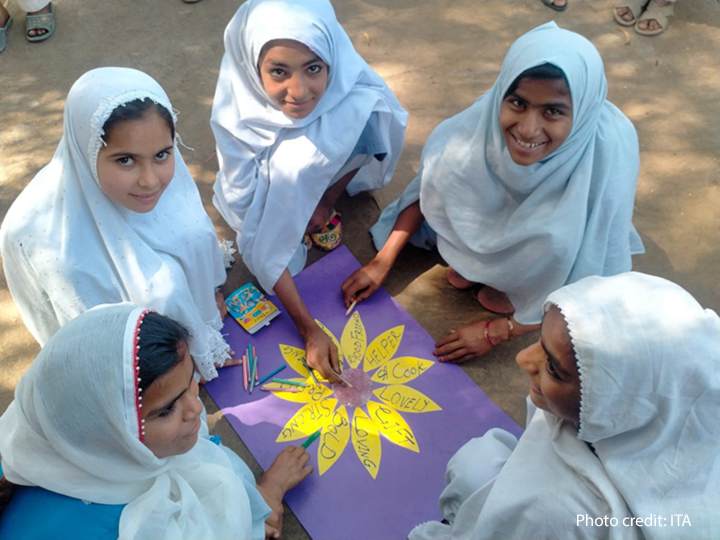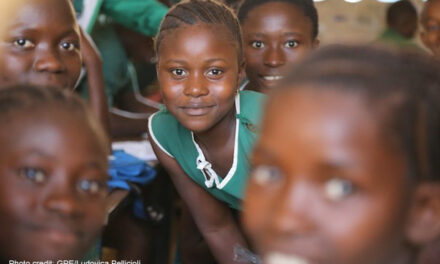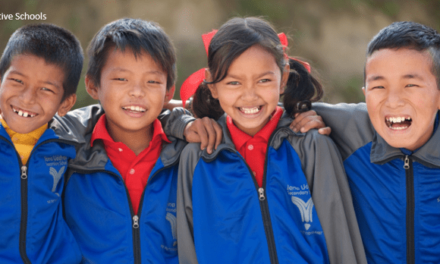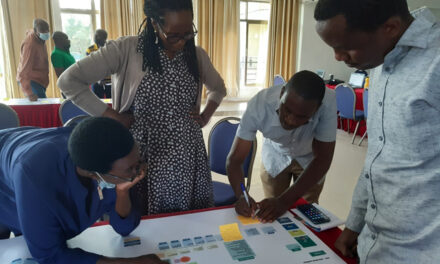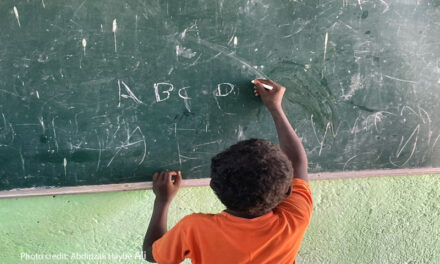This blog was written by Fatima Hafeez and Sehrish Farooq, Idara-e-Taleem-o-Aagahi. For the 2023 UKFIET conference, 32 individuals, including Sehrish, were provided with bursaries to assist them to participate and present at the conference. The researchers were asked to write a short piece about their research or experience.
Introduction:
Pakistan had 75% learning poverty even before the pandemic and other emergencies, implying a very high percentage of 10-year-old children who had difficulty reading and understanding a simple age-appropriate text. Covid-19 and the 2022 floods (due to the climate change emergency) have further pushed Pakistan to now having the highest population of out of school children (25 million+) globally. The learning poverty is extreme among the poorest and most deprived children in rural areas and growing urban slums (40% urban areas).
Solution:
The 2022 floods wreaked havoc on nearly 34,000 schools, affecting over 2.5 million children; the province of Sindh was the worst hit. In response, Idara-e-Taleem o Aagahi (ITA), a civil society organisation, with funding from FCDO and in collaboration with the School Education and Literacy Department (SELD) Government of Sindh, embarked on a mission to bridge the learning gaps and reintegrate out-of-school children through an accelerated learning programme. This programme, universally called Teaching at the Right Level (TaRL) or Chalo Parho Barho (let’s read and grow) in Pakistan, delivered through 60 days learning camps, aimed to raise foundational learning levels among primary-age children in flood-affected schools.
These camps targeted children who were at extreme risk in schools and not learning or those who had either dropped out or were never enrolled in formal schooling. Many of the out-of-school children were engaged as farm labour or domestic workers with limited exposure to learning. The programme addressed learning gaps among children enrolled in regular schools. A crucial aspect of this initiative was to assess and cater to children’s learning needs based on their current abilities, rather than adhering strictly to age or grade levels. This innovative approach utilised the renowned Combined Action for Maximised Learning (CAMaL) approach (Pratham Foundation 2014-15) embedded in routines and structured interactive activities to fast-track the learning process. Periodic evaluations using ICAN – International Common Assessment for Numeracy and ASER literacy assessment tools tracked baseline to endline changes.
Impact:
The programme focused on improving proficiency in local language, arithmetic, and English. At baseline, only 4% of children were at a storytelling level in their local language, compared to an impressive 53% at the endline. Similarly, only 3% of children could perform two-digit division at baseline, which rose to 48% by the end line. Additionally, a mere 2% of children could read at the sentence level in English at baseline, while an impressive 64% achieved this milestone by the endline; English is an aspirational language.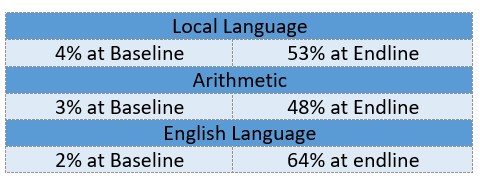
Counterfactual analysis, employing the Propensity Score Matching technique, confirmed that, on average, participating children progressed by an entire learning level upon completing the camp.
Inclusivity:
This programme was truly inclusive, with 45% of enrolled children being girls. It also welcomed 1% of children with disabilities, over 10% of out-of-school children, and 20% from minority communities. All these segments exhibited substantial improvements in their learning levels and capabilities.
Recommendations:
The success of the TaRL programme in a segment of the country that was already lagging behind is undeniable. Its potential impact on consistently bridging learning gaps is significant, especially during summer vacations and the new reading hour that the government has announced in regular schools. Moreover, there is a compelling case for training school teachers in the TaRL teaching methodology, which could be applied in government, government-funded foundation schools and low-cost private schools.
This low-cost, high-impact solution offers easily measurable results, making it replicable in developing countries worldwide to address the challenge of learning poverty. In doing so, we can pave the way for a brighter future for countless children who, through mastery of foundational learning and education, can break the cycle of poverty and contribute positively to society.

